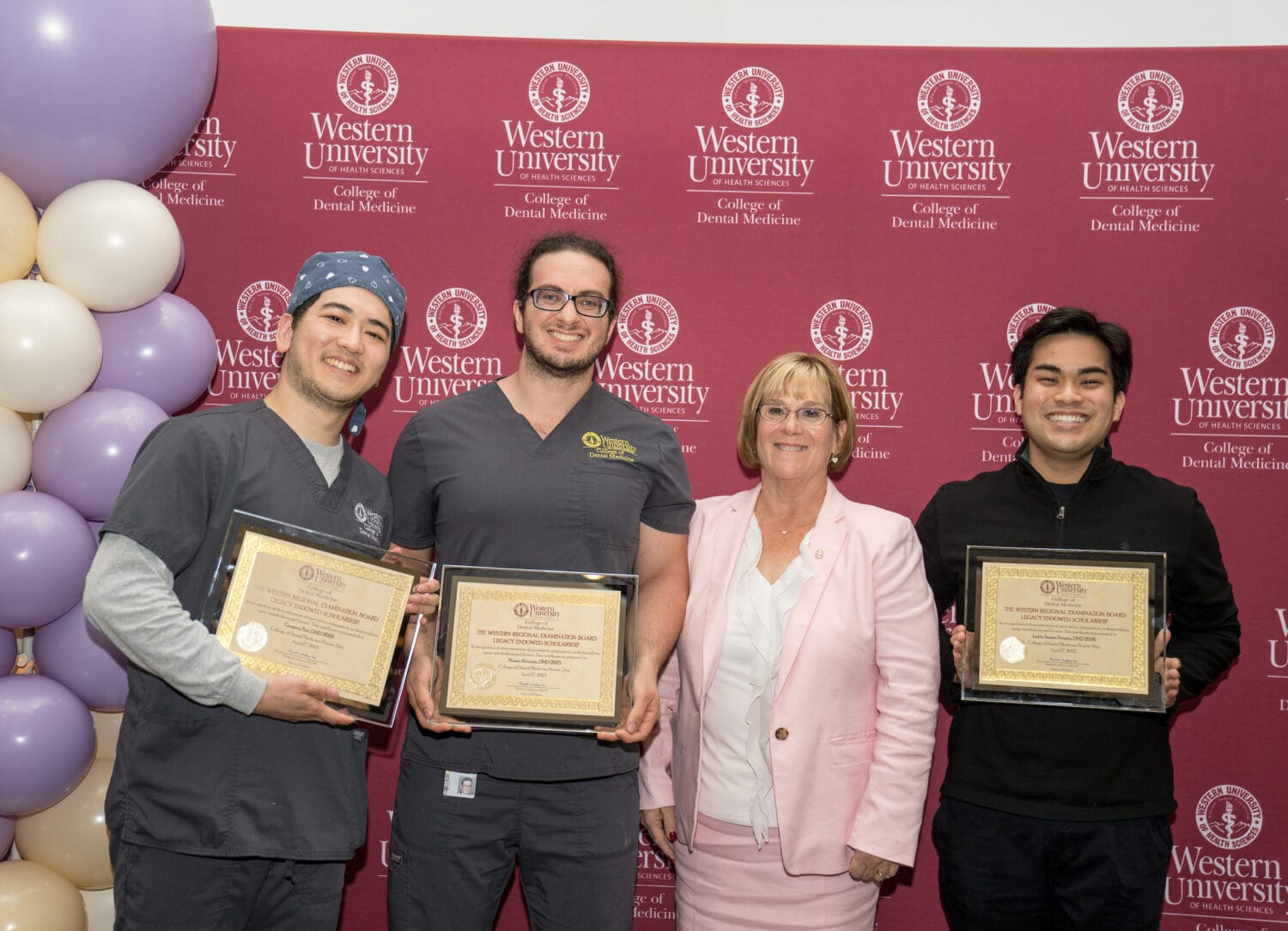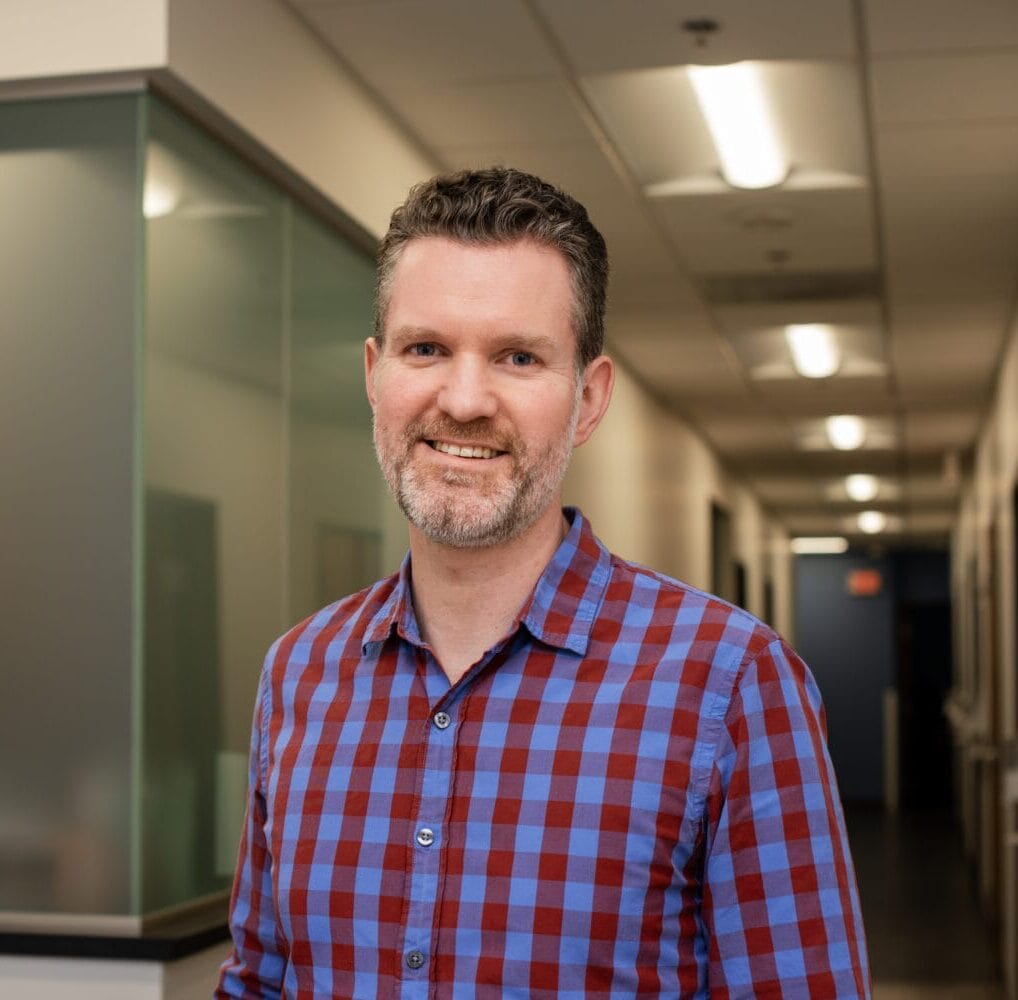WesternU’s One Health Day events focus on collaboration
One Health Day, celebrated every year on Nov. 3, emphasizes the importance of an interdisciplinary approach to world health issues. Western University of Health Sciences, which embraces this concept year-round, held multiple events to celebrate the occasion.
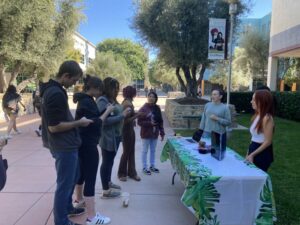
First up was a student-led One Health awareness booth Nov. 3, 2023. College of Veterinary Medicine students from the student chapter of the American Veterinary Medical Association (SAVMA) encouraged Esplanade walkers to stop and play a One Health trivia game to win prizes.
“We have to work with making animals healthy to prevent infectious diseases jumping to humans, and vice versa,” said second-year CVM student Anaid Carlo-Allende. The One Health Day tabling and student-led symposium will “spread the word about how veterinary medicine helps in One Health medicine to keep all the living beings as healthy as possible maintain good relationships with all other interprofessional fields and careers.”
CVM students organized the One Health Symposium on Nov. 6 with CVM faculty Drs. Annika Linde, Tonatiuh Melgarejo and Pedro Diniz serving as the guest speakers.
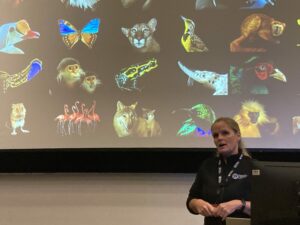
“We do have RSVPs from students from other colleges to attend the symposium,” Carlo-Allende said. “The goal is to branch out to other colleges and give them the necessary information on how we do help them – how does human medicine apply to veterinary medicine and vice versa, which ultimately helps us share knowledge about how we can make this a better place.”
Faculty and staff from several of WesternU’s health care colleges joined together with researchers from outside the campus on Nov. 3 to extoll the virtues of collaboration as part of the 6th annual One Health Day Panel.
The imperative for increased cooperation extends beyond the importance of WesternU collegiality, noted WesternU Senior Vice President for Research and Biotechnology Andrea Giuffrida, PhD, MBA. The evolving health care challenges facing the planet “require an interdisciplinary approach,” he said in a taped address. By working together, health care researchers will have the ability to “really move the needle.”
Moving the needle in the race to improve health care for all has been the goal of WesternU’s One Health Day initiative since it was launched six years ago. One Health argues that human, animal, and environmental health are intertwined, and deserves a collaborative, interdisciplinary and interprofessional approach to problem-solving.
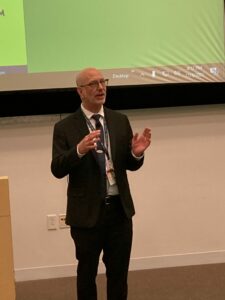
While some human medicine doctors may have been slow to discover the importance of One Health, WesternU CVM faculty and students have been advocating for the broad health care initiative for many years.
“We (veterinarians) have always been focused on a One Health approach,” said CVM Interim Dean John Tegzes, MA, VMD, DABVT. “We so easily see the interactions between humans, animals, and the environment.”
Dr. Tegzes noted that until relatively recently, humans were severely limited in where they could live on this planet. The industrial revolution and the technologies that followed changed all that, and the co-mingling of planetary inhabitants has contributed to many healthcare issues.
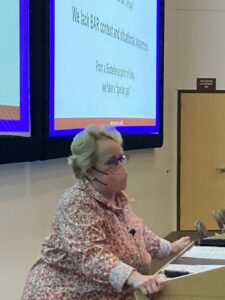
As the One Health approach to medicine has gained steam, there has been some increased interest in the subject on the part of policymakers, according to CVM Professor Tracey McNamara, DVM, DACVP, a long-time advocate for the expansion of cross-disciplinary collaboration. But that interest hasn’t always translated into more funding, a critical component that could fuel innovation and improvement, and coordination by federal agencies is often inadequate. Over time, however, Dr. McNamara noted some positive signs.
A key, she said, is by increasing surveillance of animal health and following up on issues that are discovered. “Knowing something is going on will not prompt change,” she said. “We need a diagnosis.”
Collaboration between human and animal doctors is taking place on the WesternU campus and beyond. For example, during the One Health Day program, CVM Assistant Professor Annika Linde, DVM, PhD, MPH, outlined the WesternU True One Medicine Initiative, which involves a host of collaborators in nutrition, immunology, cardiology, internal medicine, and more.
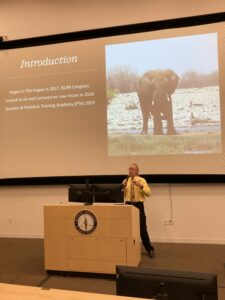
WesternU College of Optometry Associate Professor Bennett McAllister, OD, FAAO, talked about his work with the Tshemba Foundation, which augments and upgrades the capacity of hospitals and clinics in rural northeastern South Africa by filling in the gaps with the support of local and international health care volunteers across a range of disciplines. CVM Assistant Professor Rhea Hanselmann, DVM, PhD, MPVM, and Oregon State University Assistant Professor Brianna Beechler, DVM, PhD, provided a look at an ongoing collaboration among students and faculty at their two colleges focusing on tick-borne pathogens, antibiotic resistance, and water-borne pathogens. Paula Stigler Granados, PhD, MS, an associate professor at San Diego State University’s School of Public Health, discussed her work with veterinarians in identifying the incidence of Chagas’ disease, which affects humans, dogs, and other species.
Collaboration helps researchers in both animal and human health. Dr. Granados said that open communication and improved testing is “super important” in her field. Some veterinarians avoid testing animals for Chagas’ disease because there is no available treatment for the animals that are diagnosed, a decision she believes is short-sighted.
“There is hope; we are working on it,” she said. “Screening is the first piece. Once we screen for it, we’ll know more and we’ll get more funding.”
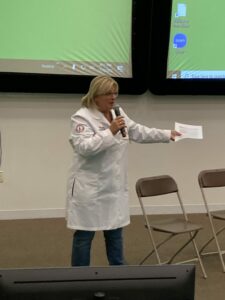
CVM Professor Suzana Tkalcic, DVM, PhD, who coordinated the event, reminded attendees of the day’s theme song, “Man in the Mirror,” and said that changing the world for the better begins with each individual.
“As we build the road to communication and exchange of ideas along the One Health concept, we have to create opportunities and continue leading the way for others to follow,” she said. “WesternU has it all in one place.”
